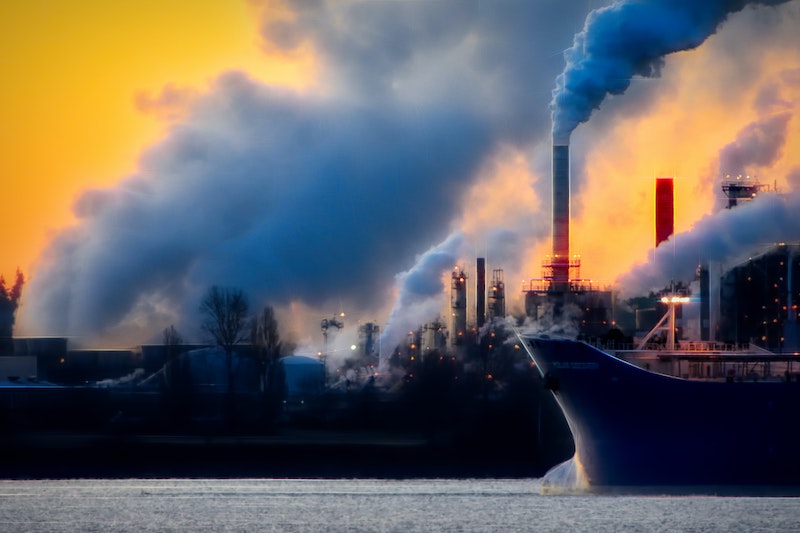Labor’s quiet move this week to exempt coal and gas projects from carbon emissions reduction rules has sparked condemnation from the Greens and left voters wondering if there is any significant difference between the major parties on climate action. Callum Foote reports on the latest favour for the coal sector and the policy differences between the Coalition and Labor.
There was no fanfare nationally. Revealing their change in policy in Queensland, Labor MP Pat Conroy, who holds the seat of Shortland, and Meryl Swanson from the neighbouring seat of Paterson in the NSW Hunter Valley, announced that coal and gas projects would be exempt from buying carbon credits under Labor’s emissions reduction strategy.
The story was leaked as an “exclusive” to the Financial Review and buried behind the Nine Entertainment paywalls but when contacted for comment for Michael West Media, Labor figures were unavailable to respond.
This policy tweak includes “tailored treatment” for what are known as emissions-intensive, trade-exposed industries (EITES) so they do not have a competitive disadvantage against overseas coal producers.
The Labor MPs referenced exemptions for EITES. In 2017, Australian coal and gas exports produced around 2.9% and 0.6% of global CO2 emissions from fossil fuel combustion respectively, making Australia one of the highest per capita CO2 emitters in the world.
According to sources in the Greens, if these industries were exempt from Labor’s climate change policy then there was effectively no difference between Labor and Liberal party policies when it comes to action on the climate crisis.
When it comes to gas, whose emissions are on par with coal, there is no significant distinction. Both parties are in favour of opening up new gas provinces, including fracking the Beetaloo Basin in the Northern Territory. Despite trenchant criticism by energy experts, Labor is even in favour of public subsidies to build the Kurri Kurri gas plant in the Hunter Valley, albeit with a slight difference in technical approach.
A hot Kurri Kurri: why Labor’s fossil proposal is even worse than the Coalition’s
Modelling commissioned by Labor from Reputex Energy, an analysis and advisory consultant for the Australian carbon and electricity commodity markets, has found Labor’s renewable energy policy would not cause any premature coal closures.
This, while a majority of Australians are demanding more action on climate change, also while an unprecedented raft of “climate independents” are running for office at the coming election on May 21 and apparently rising in popularity in the polls. The ABC’s 2022 Vote Compass shows that the climate is the highest priority for almost a third of voters, with 29% of the almost 100,000 respondents naming it as their highest priority.
However, this pro-climate sentiment is sharply split across party lines, with this view held by only 8 per cent of Coalition voters, compared with 30 per cent of Labor voters and 50 per cent of those who vote Green.
Greens Leader Adam Bandt said that “Labor has again joined the Liberals in backing coal over climate. Exempting coal mines from a climate policy is like exempting hospitals from a health policy”.
On paper, the Labor and Liberal parties have significantly different climate change policies.
Liberal Climate Policy
Despite pressure from their National Party Coalition partners, the Liberals finally acquiesced to a net-zero by 2050 target in October 2021, days before Scott Morrison was due to attend COP26 in Glasgow.
The Liberals’ 2050 target is at odds with the centrepiece of COP26, which was efforts to reach net zero by 2030, a full 20 years ahead of the government’s ‘ambitions’. Their 2030 target is to hit a reduction of 26 to 28 percent compared with 2005 levels.
The Liberals’ net-zero plan includes a $20 billion investment in low emissions technology, notably the use of carbon capture and storage (CCS) which supports not only the use but also the expansion of fossil fuels. The Liberal plan to achieve the party’s targets is also banking on technology which is yet to be developed or commercialised.
The Climate Action Tracker, an independent scientific monitor developed in collaboration between two organisations, Climate Analytics and NewClimate Institute, which tracks government climate action, shows that the current government’s climate policies will contribute to increased greenhouse gas emissions and result in a temperature increase of 3 to 4 degrees Celsius.
Their policies have also drawn widespread international condemnation. “If all countries copied Australia’s dangerously weak response, we would be headed for warming in excess of 3°C – far beyond anything it is possible to adapt to,” the Climate Council said after the IPCC’s latest report.
Labor Climate Policy
Labor’s emissions reduction target is to reduce carbon emissions to 43 per cent below 2005 levels by 2030, significantly higher than the Liberal’s targets.
Labor has also pledged to give and additional $2.55 billion to the Emissions Reduction Fund, estimating that there will be an additional 604,000 extra jobs by 2030 in the renewable energy sector. Labor, to its credit, recognises the economic benefits of a transition away from fossil fuels.
The recent sharp spike in oil, gas and thermal coal prices has driven up inflation around the world and presents a threat to economic growth as fossil fuel energy is a substantial cost input for many businesses.
Labor’s other policies around climate and energy involve building community batteries for household solar power use, as well as creating new jobs within renewable energy production. They are also committed to creating a National Electric Vehicle strategy.
The Shadow Minister for Climate Change and Energy Chris Bowen has been approached for comment but no one in Labor was available to respond to questions about the EITES revelations.
States leave feds in the dust as Taylor and Bowen play politics on energy transition
Callum Foote was a reporter for Michael West Media for four years.

